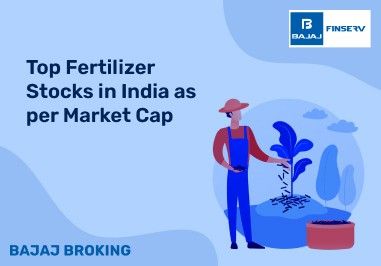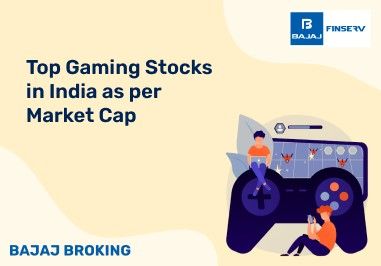BAJAJ BROKING
PDP Shipping & Projects IPO is Open!
Open a Free Demat Account
Trade Now, Pay Later with up to 4x
Track Market Movers Instantly
Auto IPOs - History In India
Synopsis:
IPOs have quickly become a popular investment option for traders. Keeping that in mind and the upcoming IPOs in August 2024, this is a look at the history of auto IPOs in India.
Introduction
An IPO or an initial public offering is a process through which private corporations enter the public domain. This happens when they decide to sell their shares to the public for the very first time. By selling these shares, the company or corporation raises funds or capital through public investors to help with their business growth.
IPOs can be taken out by any private corporation or company in any sector. This also includes sectors like tech, automobile, etc. Seeing as the Ola electric IPO is soon to be released, we thought why not talk a little about the history of auto IPOs in India?
However first, it is important to understand how IPOs work.
How an IPO Works
Any company, before launching an IPO, is considered a private company. During this time, when it is in the ‘private’ capacity a few shareholders are involved. This includes private investors like the founders themselves and possibly their family, and friends as well. Other shareholders may include venture capitalists or angel investors too. However, sometimes the capital raised through such investments doesn’t help a company further its business and grow.
Enter the IPO!
When a company decides to take out an IPO, it opens itself up to the possibility of raising significant funds to help the growth of its business. Sure going public comes with its fair share of challenges, but if a company is ready to take on the monitoring that comes with it, then going public with an IPO could be very beneficial for it.
Another thing that companies wanting to go public need to remember is that any previously owned private shares will be converted to public shares with a public trading price.
For the public, however, a huge opportunity awaits! Millions of investors can now invest in the company they think will help them earn higher returns in the stock market. This investment is then utilised by the company to grow its business operations. There are a limited number of shares that a company sells as a part of the IPO process with a particular price for which shares sell.
This is why the window to purchase any upcoming IPOs will always stay open only for a few days, till all the shares have been sold, making it even more important for investors to strike when the iron is hot!
With that in mind, and the fact that among the upcoming IPO 2024 holds for investors, the Ola IPO is one, here’s a throwback to all the important auto IPOs in India’s history.
History of Some Major Auto IPOs in India
There are so many automobile companies that have gone from being a private company to a public one and which have grown tremendously because of it. So, as a testament to the effectiveness of the IPO process, there’s a little travelling back in time for you ahead!
1. Maruti Suzuki:
Maruti Suzuki is one of the most popular automobile companies in the country and rightly so. So here’s a little history lesson for you.
How it Started:
The Government in 1981 formed a joint-venture or JV with Suzuki Motors of Japan called Maruti Udyog
Maruti Udyog, now Maruti Suzuki India, launched its IPO in 2003
The IPO opened on 12th June 2003 and closed on 19th June 2003
25% of the shares of the company were distributed for investment through the IPO
Share prices stood at ₹125 per share with a lot size of 100
The government in May 2007, exited the JV by selling its 10.3% stake in the company worth ₹2,360 Crores
Where it Stands Today
Since its IPO in 2003, the company’s share prices have gained 103 times
As of 31st July 2024, the share prices stand at ₹13,375 per share
2. Bajaj Auto
Bajaj Auto is another extremely popular automobile company in India. It is known for manufacturing motorcycles, scooters and even auto-rickshaws. Have a look at how Bajaj has fared since it went public.
How it Started:
Bajaj Auto became a public company in 1960
At this time, the company issued 34,360 shares as part of the IPO
Each share stood at ₹100 per share
The company went through a demerger on 20th February 2000 because of an order from the Bombay High Court
Where it Stands Today
Since its IPO in 2003, the company’s share prices have gained almost 96 times
As of 31st July 2024, the share prices stand at ₹9,680 per share
Upcoming IPOs
Other than the two major automobile companies above which have been a public company for quite some time now, two more companies are looking to be a part of the upcoming IPOs. This includes Hyundai Motors and Ola Electric. Here’s a look at both of them.
1. Hyundai Motors:
Hyundai Motor is the world’s third-largest auto original equipment manufacturer or OEM. The company manufactures and sells four-wheeler passenger vehicles. Below are some of the details about the upcoming IPO according to the company’s DRHP or Draft Red Herring Prospectus, that it filed with SEBI.
What to know about the IPO
The company is looking to sell 14 crore equity shares
This is equal to a 17.5% dilution of the stake
Each of these shares has a face value of ₹10
50% of the stakes being sold as a part of the IPO are reserved for Qualified Institutional Buyers or QIBs
35% is reserved for individual retail investors
15% reserved for non-institutional investors
Expected proceeds from the IPO stand at around ₹25,000 Crore
No specific date has been announced yet for the IPO
Risks highlighted by the company
Hyundai’s two group companies, (a) Kia Corporation and (b) Kia India Pvt Ltd are engaged in similar businesses which could impact business negatively due to conflict of interest.
With the only manufacturing plant in Chennai and another one coming up in Talegaon, any disruptions in either could impact financials, operations and outcomes negatively
Potential reduction or elimination of the government’s financial support will impact all aspects of the business negatively
Reduction in the demand for SUVs, the sales of which the company is majorly dependent on, can impact business outcomes negatively
What’s in it for investors
Over the years, Hyundai has seen robust growth in its business
The company’s EPS has grown from 23.15 in FY2021 to 57.96 in FY2023
With the capital it will receive through the IPO, the company will get support for any future investments in marketing, sales or product development
2. Ola Electric
Established in 2017, Ola Electric is a fully owned subsidiary of ANI Technologies which also happens to be the parent company of Ola Cabs. The sole aim of establishing Ola Electric was to help reduce carbon emissions and the fuel dependency of Ola's cabs. The long-term goal of the company is to make a shift to mass electric mobility.
What to know about the IPO
OLA Electric’s upcoming IPO happens to be the first IPO by any EV manufacturer
The IPO is said to hit Dalal Street on 2nd August.
The IPO closes on the 6th of August and its allotment is to be finalized on the 7th.
The company is said to sell 8 crore shares
The shares’ price band ranges from ₹72 to ₹76
The minimum lot size for an application is 195, taking the minimum amount to be invested to ₹14,820
The minimum lot size for investing in the IPO by sNII or small Non-Institutional Investors is 14 lots, which amounts to ₹207,480.
For bNII or big Non-Institutional Investors, the minimum lot size is 68, amounting to ₹1,007,760
75% of the stakes being sold as a part of the IPO are reserved for Qualified Institutional Buyers or QIBs
10% is reserved for retail investors
15% reserved for non-institutional investors
Company plans for the capital raised
Utilisation of ₹1227.64 Crores from the IPO for expenditure by Ola Cell Technology or OCT, a subsidiary of Ola Electric
₹800 Crores from the IPO to be used for repayment or prepayment purposes for Ola Electric Technologies or OET, another subsidiary of Ola Electric
₹1600 Crores to be utilised by Ola Electric for R&D purposes
Potential risks involved
The Red Herring Prospectus presented by the company has highlighted a few risks investors need to be aware of
Reduction in the purchasing power of consumers due to recession or economic downturns could result in lower sales and profitability
Supply-chain continuity could be affected due to the ongoing geopolitical tensions leading to shortages in inventory and an increase in overall costs.
Changes in government policies including taxation, FDI regulations, labour laws etc can lead to regulatory challenges for the company.
In Conclusion
IPOs are an interesting opportunity for investors. With the help of the IPO, a private company can go public and raise capital with the help of the investments that come in. This capital can then be used to further the company’s growth, which in turn will enable the investors who bought the IPO to also gain higher returns. With IPOs spanning across sectors, the upcoming IPOs like Ola and Hyundai are already taking the market by storm. Seeing as how well auto IPOs have brilliantly fared in the country, keeping Maruti Suzuki and Tata’s IPO history in mind, the chances of any such upcoming IPO in August being turning out to be profitable are quite high.
Disclaimer: Investments in the securities market are subject to market risk, read all related documents carefully before investing.
This content is for educational purposes only. Securities quoted are exemplary and not recommendatory.
For All Disclaimers Click Here: https://bit.ly/3Tcsfuc
Share this article:
Read More Blogs
Our Secure Trading Platforms
Level up your stock market experience: Download the Bajaj Broking App for effortless investing and trading













